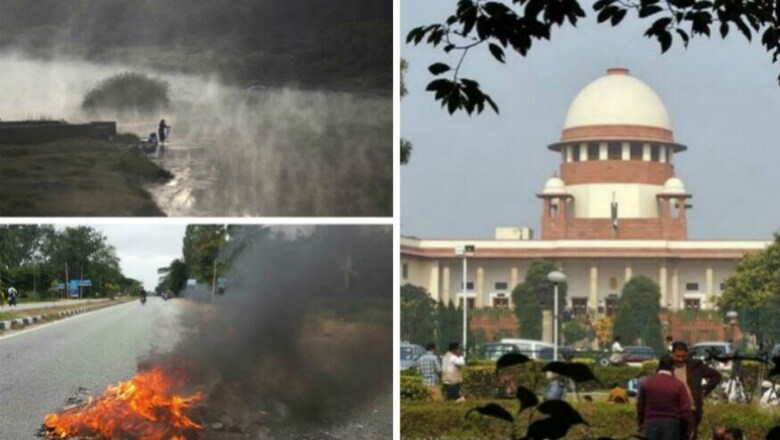
views
New Delhi: The Supreme Court on Thursday slammed the Tamil Nadu and Karnataka governments for their failure to stop people from taking to the agitation path after its order on Cauvery river water sharing and said it hoped both states will maintain peace and respect for law.
On being told that there was bandh and Rail Roko in Karnataka on Thursday and there would be a bandh on Friday in Tamil Nadu, the bench of Justice Dipak Misra and Justice Uday Umesh Lalit said, "People can't be a law to themselves. It is obligatory on the part of the State of Karnataka and Tamil Nadu to prevent such actions."
"We are compelled and constrained to say it is the duty of the State that no such agitation, damages and destruction to public and private property takes place," the bench said in its order.
The bench also said that bandhs and agitations could not be allowed in pursuant to the orders of the court.
"We sincerely hope that wisdom will prevail over the competent authority of the State to maintain peace," said the bench.
The court said this in the course of the hearing of a PIL by a social activist hailing from Kanyakumari seeking directions to both Karnataka and Tamil Nadu governments to take preventive steps to curb violence and agitations, assess the damage to public and private property and make those responsible to account for it.
The court issued notice to both the states and directed its hearing on September 20, when it would take up the main matter.
Having made its displeasure known, Justice Misra said, "We hope and trust that wisdom would prevail on both the States to maintain peace, harmony, order and calm and above all dignity and respect for law."
The top court by its September 12 order had asked Karnataka government to release 12,000 cusecs of Cauvery river water to Tamil Nadu every day till September 20, after modifying its earlier order of September 5 directing the release of 15,000 cusecs every day for next 10 days.
"There should not be any violence and agitation when it relates to the order of this court. Any aggrieved party can take legal recourse or legal remedies available," the bench said in its order.
The court said this while referring to its earlier judgment wherein it had laid down guidelines on the conduct and handling of the agitations and fixing responsibility and accountability for damage and destruction to public and private property.















Comments
0 comment